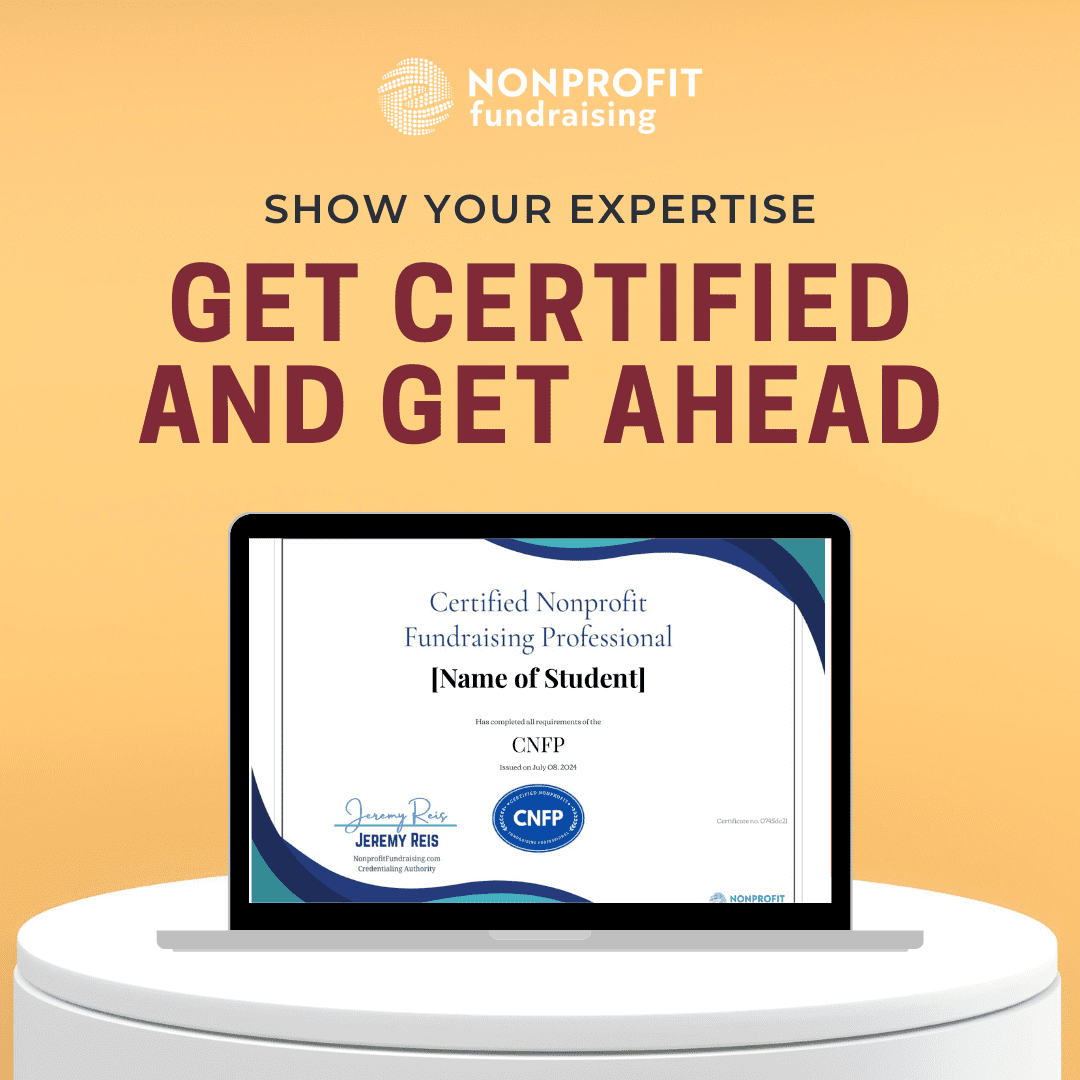Major gift fundraising is a crucial source of revenue for nonprofit organizations. Successful major gift officers are adept at securing significant donations by cultivating long-term relationships with donors, developing personalized approaches, and utilizing their skills in business and emotional intelligence. In this regard, there are several key attributes that are integral to the success of major gift officers.
This article will explore nine key attributes of successful major gift fundraisers, including their business acumen, strategic approach, focus on relationships, persistence, goal-oriented mindset, confidence, ability to delegate, emotional intelligence, and willingness to take risks. By understanding and developing these attributes, major gift officers can significantly increase their success in securing donations and building long-term partnerships with donors.
1. They Think Like Businesspeople, Not Fundraisers
The best major gift officers think like businesspeople, not fundraisers. They understand that philanthropy is a business transaction, not a feel-good transaction. As such, they approach their jobs with the same discipline and rigor as any good salesperson.
To think like a businessperson, major gift officers need to have a good understanding of their organization’s mission and goals. They need to know the product, service or program they are selling to their donors and be able to articulate the value proposition in a clear and compelling way. They need to be comfortable with data and metrics and be able to measure the impact of their work. They need to be proactive in identifying and cultivating prospects, using a range of research techniques to understand their interests, motivations, and capacity to give.
Like successful businesspeople, major gift officers need to be adept at building relationships with clients, in this case, donors. They need to be skilled at identifying and managing stakeholders, both internal and external, and working collaboratively to achieve the organization’s goals. They need to be innovative in their approach, experimenting with new techniques and technologies to engage donors and build loyalty.
Thinking like a businessperson also means being accountable for results. Major gift officers need to set ambitious goals, develop plans to achieve them, and measure progress along the way. They need to be agile and adaptable, able to pivot quickly when circumstances change or new opportunities arise.
2. They Develop a Strategy
The best major gift officers are successful because they start with a strategy. Before they start approaching donors, they take the time to develop a plan that outlines their fundraising goals, target donors, and the activities they will undertake to achieve their goals. A clear strategy ensures that they are not wasting time and resources on activities that will not bring in the desired results.
They also ensure that their strategy is flexible and adaptable to the changing fundraising landscape. They monitor trends in the industry, assess their performance regularly, and adjust their strategy accordingly. This flexibility and adaptability allow them to remain relevant and successful in the long term.
3. They Focus on the Long Game
Successful major gift officers know that building relationships with donors is a long-term process. They don’t just focus on the immediate need for funding but instead aim to create lasting partnerships with their donors. They prioritize building trust and rapport with donors, recognizing that these are the building blocks for long-lasting donor relationships.
They invest in cultivating these relationships over time, often leveraging multiple touchpoints such as regular communication, events, and in-person meetings. By focusing on the long game, they can secure not just one major gift but ongoing support from their donors.
4. They’re Persistent
The best major gift officers are persistent in their pursuit of major gifts. They understand that a “no” today doesn’t mean a “no” forever, and they’re not afraid to ask for the gift again in the future. They’re tenacious and remain committed to their goals, even when faced with challenges and rejections.
Their persistence is also marked by their willingness to follow up with donors regularly. They keep their donors informed about the impact of their gifts, seek feedback, and offer opportunities for continued engagement. By remaining persistent, they eventually secure major gifts that might not have been possible if they had given up at the first hurdle.
5. They Keep Their Eyes on the Prize
The best major gift officers are successful because they maintain a laser-like focus on their goals. They set ambitious targets and remain motivated to achieve them, even in the face of setbacks. They understand that achieving major gifts requires hard work, dedication, and a willingness to stay the course even when the going gets tough.
They also recognize that success requires a team effort, and they work collaboratively with colleagues to achieve their goals. By keeping their eyes on the prize and remaining focused on their targets, they can achieve their fundraising objectives.
6. They’re Confident
The best major gift officers are confident in their abilities and approach their work with a sense of conviction. They believe in themselves and their approach, and this confidence is contagious. Their self-assurance helps to instill confidence in their colleagues and donors, who see them as knowledgeable and trustworthy.
Their confidence also allows them to be creative and take calculated risks in their fundraising efforts. They are not afraid to try new approaches or take on new challenges, which can sometimes lead to breakthroughs in their fundraising efforts. This confidence, combined with a willingness to take risks, is a potent combination that can lead to significant success in major gift fundraising.
7. They Delegate
Successful major gift officers know that they cannot do everything themselves and are not afraid to delegate. They recognize that delegation is a key skill for any leader and work to develop their team’s capabilities so that everyone can contribute to the organization’s fundraising goals.
They also understand that delegation frees up their time and energy to focus on their most critical responsibilities, such as developing relationships with key donors. By delegating tasks effectively, they can optimize their team’s performance and maximize their fundraising potential.
8. They Have High Emotional Intelligence (EQ)
The best major gift officers have high emotional intelligence, which is essential in fundraising. Emotional intelligence is the ability to understand and manage one’s own emotions and the emotions of others effectively. This skill is essential in building strong relationships with donors, which is critical for major gift fundraising.
Successful major gift officers can read their donor’s emotional cues, understand their motivations, and tailor their approach accordingly. They also know how to manage their own emotions, particularly during challenging interactions with donors, to maintain positive relationships. Emotional intelligence is a skill that can be developed, and successful major gift officers prioritize developing this skill to improve their fundraising results.
9. They Take Risks
The best major gift officers are not afraid to take risks, but they are calculated risks. Fundraising requires creative thinking and innovation, and successful major gift officers are willing to take bold steps to achieve their goals. They are willing to experiment with new approaches, try new strategies, and test new ideas to see what works best.
They also recognize that taking risks involves careful planning and analysis to ensure that their efforts are effective. By taking calculated risks, they can develop innovative approaches that set them apart from the competition and achieve significant success in major gift fundraising.
In conclusion, successful major gift officers possess a unique combination of skills and traits that help them achieve their fundraising goals. They think like businesspeople, develop a strategy, focus on the long game, are persistent, keep their eyes on the prize, are confident, delegate effectively, have high emotional intelligence, and take calculated risks. These skills and traits are critical in building lasting relationships with donors and securing significant major gifts, which are essential for any nonprofit organization’s success.

